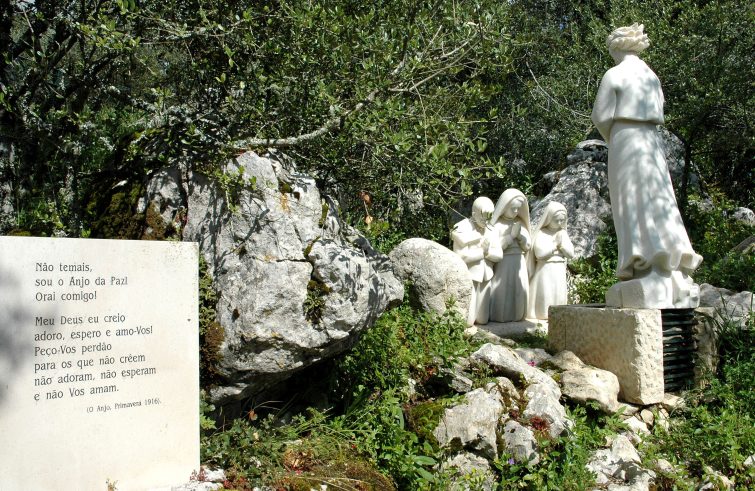
Only the Holy Father may “exceptionally” authorise a procedure to declare the “supernaturalness of events”, an exception “that has been made only rarely in recent centuries.” This is stated in the new Norms of the Dicastery for the Doctrine of the Faith for Proceeding in the Discernment of Alleged Supernatural Phenomena. Accordingly, declarations of “supernaturalness” are replaced either by a “Nihil obstat”, which authorises positive pastoral action, or “by another determination suited to the specific situation.” The procedures set forth in the new Norms, which provide for six possible prudential conclusions, “make it possible to reach a decision in a more reasonable period of time, helping the Bishop to manage a situation involving events of alleged supernatural origin before such occurrences – without a necessary ecclesial discernment – acquire very problematic dimensions,” explains Victor Manuel Fernandez, Prefect of the Dicastery for the Doctrine of the Faith, in the introductory remarks of the document. In the new Norms, the possibility of declaring an event “not supernatural” remains, but “only when there are objective signs that clearly indicate manipulation at the basis of the phenomenon. For instance, this might occur when an alleged visionary admits to having lied or when evidence shows that the blood on a crucifix belongs to the alleged visionary.”
“Discernment” of an alleged supernatural phenomenon “remains the task of the Diocesan Bishop.” However, since “now more than ever, these phenomena involve many people from various Dioceses and spread rapidly across different regions and even countries,” the new Norms establish that the Dicastery for the Doctrine of the Faith “must always be consulted and give final approval to what the Bishop decides before he announces a determination on an event of alleged supernatural origin.”
In short, “the discernment of alleged supernatural phenomena is carried out from the start by the Diocesan Bishop (or by another ecclesiastical authority) in dialogue with the Dicastery”, which “reserves the right to evaluate the moral and doctrinal elements of that spiritual experience and the use that is being made of it.” Sometimes, the new Norms stipulate, “the discernment may also deal with problems, such as delicts, manipulation, damage to the unity of the Church, undue financial gain, and serious doctrinal errors that could cause scandals and undermine the credibility of the Church.” Moreover, in some cases, the Dicastery may intervene “motu proprio”. Once “a clear determination is made”, the new Norms specify that “the Dicastery, in any case, reserves the right to intervene again depending on the development of the phenomenon in question” and request the Bishop to continue “to watch over the phenomenon” for the good of the faithful.
“In some events of alleged supernatural origin, there are serious critical issues that are detrimental to the faithful”,
reads the document, which condemns “the use of such phenomenon to gain profit, power, fame, social recognition, or other personal interest – even possibly extending to the commission of gravely immoral or the use of these phenomena as a means of or pretext for exerting control over people or carrying out abuses.” “One should not overlook, for example, the possibility of doctrinal errors, an oversimplification of the Gospel message, or the spread of a sectarian mentality”, continues Card. Fernandez in his presentation. He goes on to note:
“There is the possibility of believers being misled by an event that is attributed to a divine initiative but is merely the product of someone’s imagination, desire for novelty, tendency to fabricate falsehoods (mythomania), or inclination toward lying.”
Not to mention media sensationalism, that “can attract the attention of many believers or cause confusion among them.” Whenever a “Nihil obstat” is granted by the Dicastery, such phenomena of alleged supernational orgin “do not become objects of faith.” At times, some phenomena, which could have a supernatural origin,
“appear connected to confused human experiences, theologically inaccurate expressions, or interests that are not entirely legitimate”,
the text underlines. According to the new Norms, the Church will be able to fulfill its duty of discerning “whether signs of a divine action can be ascertained in phenomena that are alleged to be of supernatural origin; whether there is that anything conflicts with faith and morals in the writings or messages of those involved in the alleged phenomena in question; whether it is permissible to appreciate their spiritual fruits, whether they need to be purified from problematic elements, or whether the faithful should be warned about potential risks; whether it is advisable for the competent ecclesiastical authority to realize their pastoral value.” “Positive criteria” to be considered include “the credibility and good reputation of the persons, the mental equilibrium, honesty and moral uprightness.” Among the “negative criteria” figure: doctrinal errors, pursuit of profit, power, fame, social recognition, or other personal interest, “gravely immoral actions committed by the subject or the subject’s followers at or around the time of the event, psychological alterations or psychopathic tendencies in the person.” Finally, compared to the previous three, the Norms introduce six possible determinations for the final vote on the alleged phenomena.










